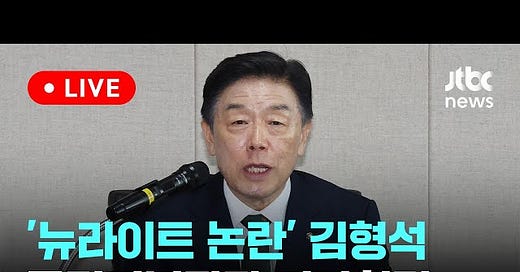Etymology and Meaning of "Chinilpa (친일파)"
Etymology: The term "Chinilpa" (친일파) is derived from three Korean words: "친" (chin), meaning "close" or "friendly," "일" (il), meaning "Japan," and "파" (pa), meaning "faction" or "group." Initially, this term referred to groups or individuals who maintained friendly relations with Japan. However, in the historical context, it specifically refers to Koreans who collaborated with Japanese imperialism during the colonial period.
Meaning: "Chinilpa" generally refers to Koreans who collaborated with or supported Japanese imperial rule over Korea. These individuals are seen as traitors who betrayed their country by assisting the Japanese in oppressing the Korean people and advancing the interests of Japan during its occupation of Korea.
Collaborative and Treasonous Actions of the Chinilpa
Collaboration and Support: The Chinilpa actively collaborated with Japanese imperial policies. They played key roles in supporting Japan’s political, economic, and cultural control over Korea, often suppressing Korean independence movements to maintain Japanese rule.
Cultural Suppression: The Chinilpa were complicit in Japan’s efforts to replace Korean culture with Japanese culture. They supported policies that suppressed the Korean language and promoted the use of Japanese, undermining Korea’s cultural identity.
Economic Exploitation: The Chinilpa aided Japan’s colonial exploitation of Korea’s resources. They were involved in facilitating the extraction and transfer of Korea’s natural resources to Japan. Additionally, they participated in the forced conscription of Korean laborers for Japan’s war efforts and the sale of Korean lands and assets to Japanese interests, contributing to the economic oppression of Koreans.
Negative Impact of the Chinilpa on South Korea
National Division: The existence of the Chinilpa created deep divisions within Korean society. After Korea’s liberation, the failure to properly address and punish the Chinilpa allowed them to maintain significant influence in various sectors such as politics and the economy. This hindered South Korea’s democratic development and social integration.
Historical Distortion and Trauma: Even after liberation, many Chinilpa tried to conceal or whitewash their past actions, leading to distortions in historical narratives. Their betrayal left deep scars on Korean society, contributing to ongoing resentment and unresolved historical wounds.
Social Distrust: The continued prominence of Chinilpa figures in post-liberation South Korea fostered widespread distrust and disillusionment. Their ability to retain power and wealth despite their collaborationist past undermined public confidence in justice and fairness, impeding social cohesion and progress in the country.
Conclusion
The Chinilpa were Koreans who collaborated with Japanese imperialism, betraying their nation and contributing to the subjugation of the Korean people. Their actions have left lasting scars on South Korea’s history and society. The failure to fully address and rectify their actions after liberation has had ongoing negative effects, hindering the country’s social and political development.




![다시보기] '뉴라이트 논란' 김형석 독립기념관장 기자회견-8월 12일 (월) 풀영상 [이슈현장] / JTBC News - YouTube 다시보기] '뉴라이트 논란' 김형석 독립기념관장 기자회견-8월 12일 (월) 풀영상 [이슈현장] / JTBC News - YouTube](https://substackcdn.com/image/fetch/$s_!OrSa!,w_1456,c_limit,f_auto,q_auto:good,fl_progressive:steep/https%3A%2F%2Fsubstack-post-media.s3.amazonaws.com%2Fpublic%2Fimages%2F100a5a72-b8e5-4149-954c-c292c275f3ee_640x480.jpeg)